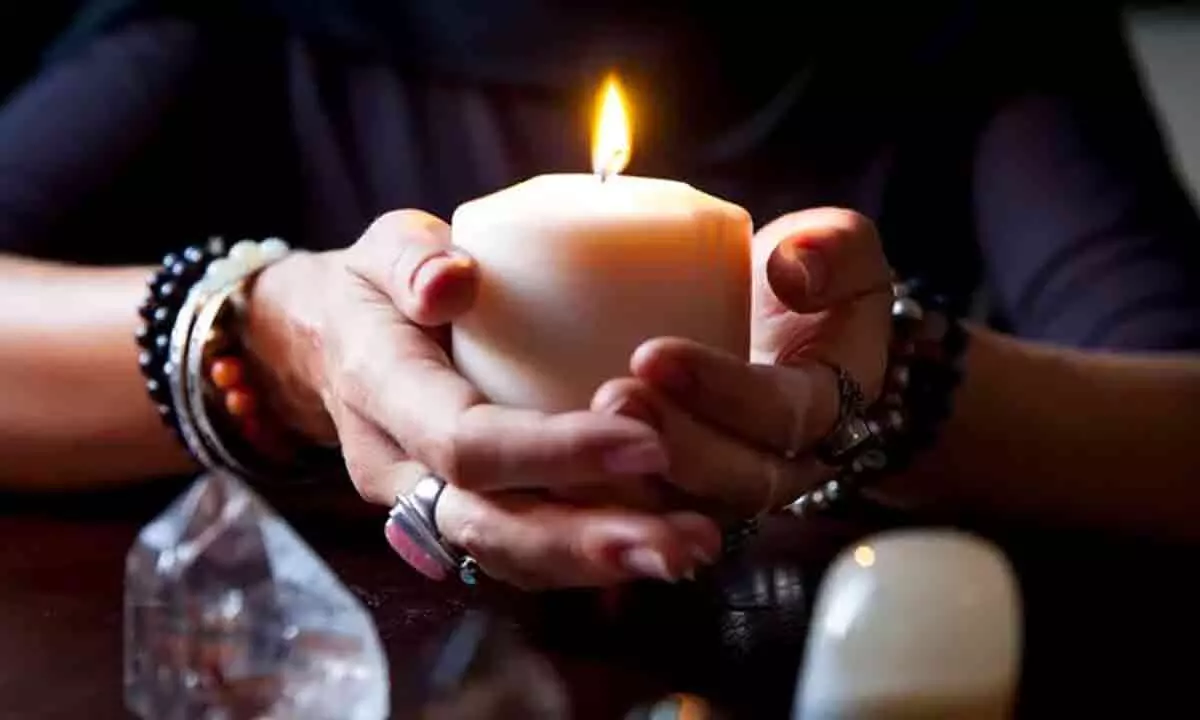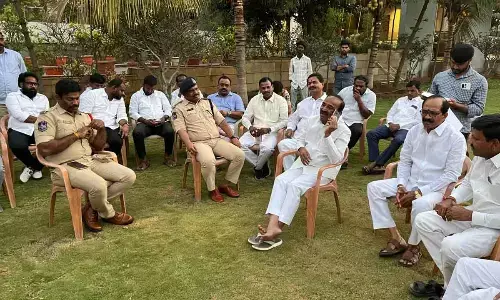From Ritual to Spiritual

Rituals are to be seen as the preparatory stage for a lay person who would graduate from that level to advanced levels of yoga illustrated in the Gita. Krishna says, ‘Do not confuse a simple person following some path with all sincerity. Do not pontificate to him; do not find fault with him. Let him pursue his path and attain purity of mind first. He/she would then be fit to contemplate the loftier ideas you may have to suggest’ (The Gita, 3-26). Ritual is a preparatory step to the spiritual
It is well known that the mind has greater importance than bodily action, good or bad. Like in the case of crimes where law sees the mens rea, the guilty mind, the intention behind an action has greater value in all actions. An example can be the surgery done by a doctor, leading to the unfortunate death of a person. It is not taken as a crime as it is done with a different intention. Similarly, in all our religious actions our mind is more important than our actions. All sages of all traditions have always given importance to the devotion of a person than to ostentatious actions. Ostentation is strongly censured by the Gita. The Sanskrit word is dambha, spiritual pride. Our puranas personified it into a demon called dambha-asura. Very recently we saw how the pretentious scholars who foretold the political fortunes of the leaders faced ridicule when all their soothsaying was undone by the voters. The noble shastra, jyotisha, was made an object of ridicule by the half-baked pundits who had no devotion or tapas for it.
We can examine our rituals in this context. Throughout religious history we see rituals assuming an important role in religious life. Great thinkers envisioned them with noble intentions to discipline a lay person and enable him/her to enter the discipline of religion. However, in course of time the people who ministered them got drawn away from the original vision and were drawn into pride. The purport of the rituals was lost but they were proud of their knowledge of the externalities of rituals. History shows that whenever such aggrandizement took place, there was a reaction. This is a necessary correction which happens. This is what we see in Buddha who did not give importance to rituals but taught people how to meditate. Buddha was not opposed to rituals, but he censured the over-emphasis and pride in ritualistic knowledge. The Bible records a similar conflict where Jesus censures the Pharisees, the religious leaders of his time, for being overbearing. They tended to display their external religious insignia instead of leading the lay persons on the right path (Matthew – Ch 23, and other places). They used to inscribe the sentences from scriptures on their caps. The wider the caps, the prouder was its wearer. The intent was that compassion, love etc., are to be inscribed in the mind and not on the caps they wore, but the ritualists had forgotten them.
Ritual is not to be condemned. Fortunately, after Buddha we had several saints like Shankaracharya who reconciled such contradictions and placed rituals in their rightful position. Rituals are to be seen as the preparatory stage for a lay person who would graduate from that level to advanced levels of yoga illustrated in the Gita. Krishna says, ‘Do not confuse a simple person following some path with all sincerity. Do not pontificate to him; do not find fault with him. Let him pursue his path and attain purity of mind first. He/she would then be fit to contemplate the loftier ideas you may have to suggest’ (The Gita, 3-26). Ritual is a preparatory step to the spiritual.
The Gita (2-66) uses the word ‘bhavana’, earnest longing, to know the highest. It does not happen as long as a person stays content with the rituals and their benefits (like heaven, wealth, etc.,) or seeks newer and newer rituals. Bhavana happens when the seeker limits his/her rituals to the minimum mandatory level, performs actions as an offering to the cosmic scheme and starts contemplating the vagaries of the mind and tries to attain quietude. After this a person studies and contemplates the scriptures under the guidance of a teacher. Most of us are not aware of the existence of this stage. We are content with our observation of rituals but totally miss out on the higher levels.
(The writer is a former DGP, Andhra Pradesh)











